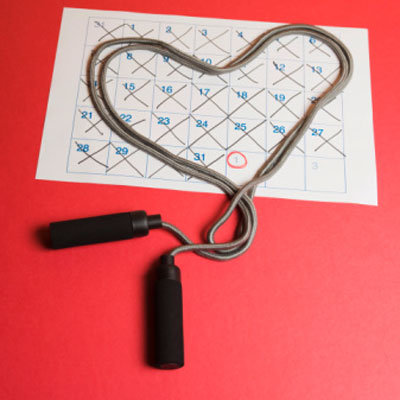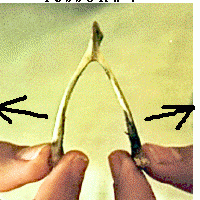Obesity and Cancer - What You Need to Know
Everyone knows that smoking is a major cause of cancer. Yet, according to research published in the British Journal of Public Health, obese adults have more chronic health problems than their smoking counterparts, some of which greatly increase their risk of cancer.
More than 30 known diseases are now believed to be directly linked to excess body fat, including heart disease, diabetes, periodontal disease, inflammation, high cholesterol, high blood pressure, infertility, and many cancers (including gastrointestinal, colon, kidney, esophagus, prostate, breast, and endometrial).
Over the last several years, more scientists have come to accept that there is a link between obesity and cancer. According to Dr. Graham Colditz, epidemiology professor at Harvard School of Public Health, "Given the trends in obesity and the increasing evidence of a broad range of cancers caused by excess energy balance, the projected burden of cancer over the coming years is worrisome."
Cancer, Obesity, and Insulin
One of the primary areas of concern regarding the accumulation of body fat is its association with high insulin levels, a condition referred to as hyperinsulinemia. Researchers from Columbia University found that hyperinsulinemia increases the incidence of obesity in prepubescent girls, and it also precedes a diagnosis of type 2 diabetes by five to 20 years. What does this have to do with cancer? Aside from the connection between high insulin levels and obesity, it turns out that numerous cancers may also be linked with high levels of insulin.
Israeli researchers have discovered that patients suffering from colon, stomach, and breast cancer had up to three times as much insulin, or insulin-like substances, in their tumours. Hyperinsulinemia is often associated with insulin resistance, the condition where body cells resist or do not respond even to high levels of insulin. Turkish researchers have discovered a possible means by which obesity and high insulin levels create an enhanced risk for cancer-especially breast cancer. In overweight and obese patients, inflammatory biochemicals (possibly coming from fat cells) and high insulin levels appear to work synergistically to contribute to the development of breast cancer.
It is no wonder that cancer is at epidemic proportions when you consider that most people consume an abundance of overly processed high-glycemic foods that over stimulate insulin. High insulin levels then stimulate an enzyme that greatly affects fat storage called lipoprotein lipase (LPL). Obesity researchers sometimes call LPL the gatekeeper of fat storage because of its powerful ability to enhance fat cells.
Further research presented in the journal Medical Hypothesis shows that low-glycemic, vegetarian, high-protein diets lower LPL activity. If you reduce insulin through diet (not dieting), you can control your rate of fat storage, and this would contribute to decreasing your risk of obesity and cancer. Here's how:
References:
- Avoid high glycemic foods-especially processed grains (white flour).
- Supplement with natural fiber formulas (like the 100% food-based organic FibreLean™ formula) approximately 15 minutes prior to each meal.
- Get adequate sleep; researchers have found a link between insufficient sleep, hyperinsulinemia, and insulin resistance.
- Take a long walk after dinner, as this will help to clear excess sugars from your blood.
- Sturm, R., K.B. Wells. "Does Obesity Contribute as Much to Morbidity as Poverty or Smoking?" Public Health 115 (2001): 229-295.
- Batty GD, et al. Obesity and overweight in relation to disease-specific mortality in men with and without existing coronary heart disease in London: The original Whitehall study. Heart. 2005 Nov 3
- Genco RJ, et al. A Proposed Model Linking Inflammation to Obesity, Diabetes, and Periodontal Infections. J Periodontol. 2005 Nov;76(11-s):2075-2084.
- Couillard C, et al. Plasma high-density lipoprotein cholesterol but not apolipoprotein A-I is a good correlate of the visceral obesity-insulin resistance dyslipidemic syndrome. Metabolism. 1996 Jul;45(7):882-8.
- Johnson D, et al. Relation of abdominal obesity to hyperinsulinemia and high blood pressure in men. Int J Obes Relat Metab Disord. 1992 Nov;16(11):881-90.
- Gao Q, et al. Disruption of neural signal transducer and activator of transcription 3 causes obesity, diabetes, infertility, and thermal dysregulation. Proc Natl Acad Sci U S A. 2004 Mar 30;101(13):4661-6. Epub 2004 Mar 22.
- Dobson R. Obesity increases risk of several cancers in men and women, study finds. BMJ. 2005 Nov 5;331(7524):1042.
- Colditz G. Obesity, Energy Balance, and Physical Activity. American Association for Cancer Research: Frontiers in Cancer Prevention Research. Oct, 31, 2005.
- Lakka HM, et al. Obesity and weight gain are associated with increased incidence of hyperinsulinemia in non-diabetic men. Horm Metab Res. 2002 Sep;34(9):492-8.
- Nambi V, et al. A truly deadly quartet: obesity, hypertension, hypertriglyceridemia, and hyperinsulinemia. Cleve Clin J Med. 2002 Dec;69(12):985-9.
- Proinsulin in girls: relationship to obesity, hyperinsulinemia, and puberty. J Clin Endocrinol Metab. 2002 Oct;87(10):4673-7.Chin D, et al.
- Jee SH, Kim HJ, Lee J. Obesity, insulin resistance and cancer risk. Yonsei Med J. 2005 Aug 31;46(4):449-55.
- Yam D, et al. Hyperinsulinemia in colon, stomach and breast cancer patients. Cancer Lett. 1996 Jul 12;104(2):129-32.
- Gonullu G, et al. Relation between insulin resistance and serum concentrations of IL-6 and TNF-alpha in overweight or obese women with early stage breast cancer. Cytokine. 2005 Aug 21;31(4):264-9.
- McCarty MF. Modulation of adipocyte lipoprotein lipase expression as a strategy for preventing or treating visceral obesity. Med Hypotheses. 2001 Aug;57(2):192-200.
-
Get rid of extra fat in your body with natural weight loss products
Body fat - The loose connective tissue that is composed mostly of adi
-
How To Lose 10 Pounds a Week
It is about that time of year where we all make our resolutions to los
-
Natural Weight Loss, Which Products Truly Deliver?
People who are trying to find natural weight loss products
-
Say No to Meal Stealers and Fad Diets! Say Dieting Researchers
When people try to work out why diets almost inevitably fail other tha
-
Best Way To Lose Fat Around Stomach
It seems that nowadays that everybody is trying to lose fat around sto
-
Diet Solution Program Menu
The Diet Solution Program is an e-book with 180 pages written by Isabe
- DON'T MISS
- Using Bariatric Centers to Safely Lose Weight
- Fat Burning Furnace - Ultimate Weight Loss Program for Those Sick of Ridiculous Diets!
- Is Caffeine Keeping You From Losing Weight?
- Why Chose The Advocare 24 Day Challenge
- The Four Phases of the Atkins Diet
- The Diet Solution
- 6 Pack Abs For Kids
- Avoiding Over-training To Maximize Muscle Growth
- Avoid Weight Gain After WLS: Learn the Difference Between Snacking and Grazing
- Fat Burning Furnace - The Top 4 Weight Loss Mistakes You Should Avoid!




